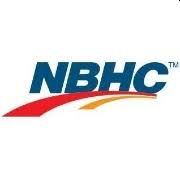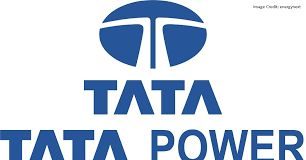https://www.freepressjournal.in/business/nbhc-expects-double-digit-growth-in-the-value-added-services-category
NBHC expects double-digit growth in the value-added services category

NBHC (National Bulk Handling Corporation Ltd) – once part of the MCX group, but now independent – handles over 160 commodities in more than 9,000 storage facilities across 900 plus locations across India. It has come a long way leaving behind the challenging times the institution faced many years ago.
Ramesh Doraiswami, Managing Director and Chief Executive Officer, NBHC in an interview with FPJ’s Jescilia K and RN Bhaskar, shares the journey of the company and its latest offering Krishi Setu.
Edited excerpts:
Tell us about National Bulk Handling Corporation’s (NBHC) journey post moving away from MCX.
NBHC is still on an entrepreneurial journey. True North acquired NBHC from the MCX group way back in 2014.
True North is known for its impeccable value systems; its model of working very closely with the companies (owned by it) to build the business; and creating differentiation with technology.
Before 2014, NBHC had a strong reputation and solid business. Unfortunately, the crisis following Financial Technologies impacted us. It created a crisis of confidence. However, there was nothing fundamentally wrong in or with the company. Nevertheless, the customers were concerned then. There was a temporary blip. But in 2014, True North and NBHC took this as a challenge and rebuilt the business.
Today, the company has a new direction as well. Between 2015-2020, the company was among the top two in any service line where we were present.
For instance, collateral management was the big service line for us. We have a 50 per cent share of the collateral management business in almost all large banks in India. Other businesses that we engage in are among the top two – storage, investment management, procurement and trade facilitation service.
Tell us more about the growth in various businesses.
We have demarcated business into two categories: asset management and value-added business (knowledge businesses).
This value-added business is knowledge and technology-based. It works on a high level of technical selling. We have entered pest management services; testing, inspection and certification; and now we are creating a procurement service line through Krishi Setu. We are branding all our services lines. The pest management business is growing and has a lot of potential. The fumigation business has grown double-digit in the last two years despite all the effects of the pandemic. We do a million tonnes of fumigation.
NBHC used to be a large procurement agent for the Food Corporation of India (FCI) in the past. However, we as a company took a decision to go slow on government business and we chose to focus on private business. The changes that are happening, we still feel are worthwhile opportunities.
For the last two years, NBHC is paperless in the case of agriculture commodities (in warehousing services). This is an advantage. Thus, creating an e-marketplace for us and opening up future opportunities in procurement.
We aspire to grow asset management and value-added business equally. However, value-added business is only 9-10 per cent of our total business. In three years’ time, we expect it to be 25 per cent. Necessarily without slowing down the company. Clearly, this is the shift.
It is advised that the best way to grow farm sector is if the government moves away from direct procurement. Your views.
The maturity or professionalism of the farm sector in India is not very high. Few things that hurt the Indian farm sector are low productivity and the norms around pricing. There is a need for some level of government support that the farm sector needs. Having said that, I would like to add that India is not the only country that supports its farmers. However, other countries support their farmers indirectly whereas in India it is direct. From a belief standpoint, indirect support is the way to go.
I believe it is better to have a national marketplace rather than a localised marketplace (that controls the fortune of farmers). The national marketplace needs aggregation of farmers and this will take time. However, we need to move in this direction.
Through Krishi Setu, we are trying to move in this direction. However, Krishi Setu can help bring about change as we have a national presence and have a good connection on the buyer side. Through Krishi Setu, we are doing our bit to make a difference in this market.
What would your topline be?
Today, it will be around Rs 220 crore. Last year, it would have been around Rs 200.3 crore. In FY 2022, we are looking at Rs 225 crore.
This year we are trying to replace Rs 60 odd crore of collateral business that we were doing on not very favourable terms. We as a company has decided to step away from those businesses that are not dependent on professional systems even though that will impact our business.
Over the last three years, we may even have flat revenue growth. But we will change the sustainable, commercial performance of the company.

Many of FPOs are known to have governance issues. How do you plan to evaluate them for Krishi Setu?
We have already connected with 700 FPOs across the country. We are evaluating them. The thing about FPOs is that it is not overnight work. We believe that this project will take three to four years (before its full operation) as we need to help FPOs to become independent aggregators of business. But we are working with them with a variety of models. While we know agricultural commodities well, we do not know farmers or FPOs very well. We are working with innovative partners who have worked in this space.
Do you intend to expand to any newer areas?
We have a fair amount of new ideas in form of pest management services; testing, inspection and certification; and Krishi Setu.
Another area that we are looking at is a product that will be useful to small traders, farmers etc. This product will enable us to de-bottleneck the credit needs of the market. This is a new product line that will be useful when we start engaging with FPOs.
Any investments planned?
We work on an asset-light model. Our biggest investments are in people and the digitisation of processes. Those are areas our investments will be planned.








































COMMENTS